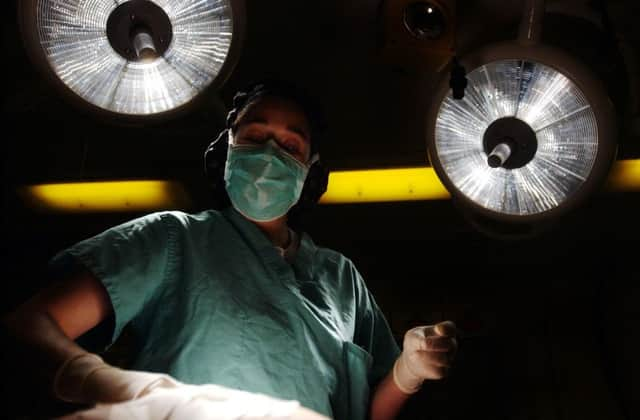Nearly a third of Scots willing go under knife for surgery by robots


Some 30 per cent of people questioned said they would be willing to allow AI machines to carry out invasive procedures, such as heart surgery or tumour removal.
Close to one in four people (37 per cent) would let robots take the place of humans when it comes to minor surgery, such as laser eye or cataract treatment.
Advertisement
Hide AdAdvertisement
Hide AdOverall, however, Scots remain less willing than the average Briton to submit to AI surgery, with more than half of people saying they did not trust robots to correct surgery that goes wrong.
The results of the AI in Healthcare survey by PwC showed some 38 per cent of those surveyed felt they needed a “human touch” when it came to care.
Advocates of AI say it would allow the healthcare profession to make faster, more accurate diagnoses, but over one in three Scots (34 per cent) saw no advantage to using advanced computers or robots.
Asked to identify the biggest disadvantage of AI, the majority (54 per cent) said they didn’t trust robots to make decisions on what to do if something unexpected is found during surgery or in a test.
Some 43 per cent believed only a doctor or human healthcare professional could make the right decisions for health treatments or procedures.
David Brown, head of government and public sector at PwC in Scotland, said: “The sophistication of artificial intelligence is growing exponentially and in the likes manufacturing is already widely adopted.
“It seems however that we are more reluctant to embrace AI when it comes to healthcare, though with the study showing that 30 per cent of Scots would be willing to have a robot perform invasive surgery on them, it is clear that attitudes are beginning to change.”
Robots are already used in the NHS, with three machines known as da Vinci models utilised for prostate surgery.
Next year, meanwhile, the Dundee Institute for Health Simulation will launch the country’s first training programmes for robot-assisted surgery.
